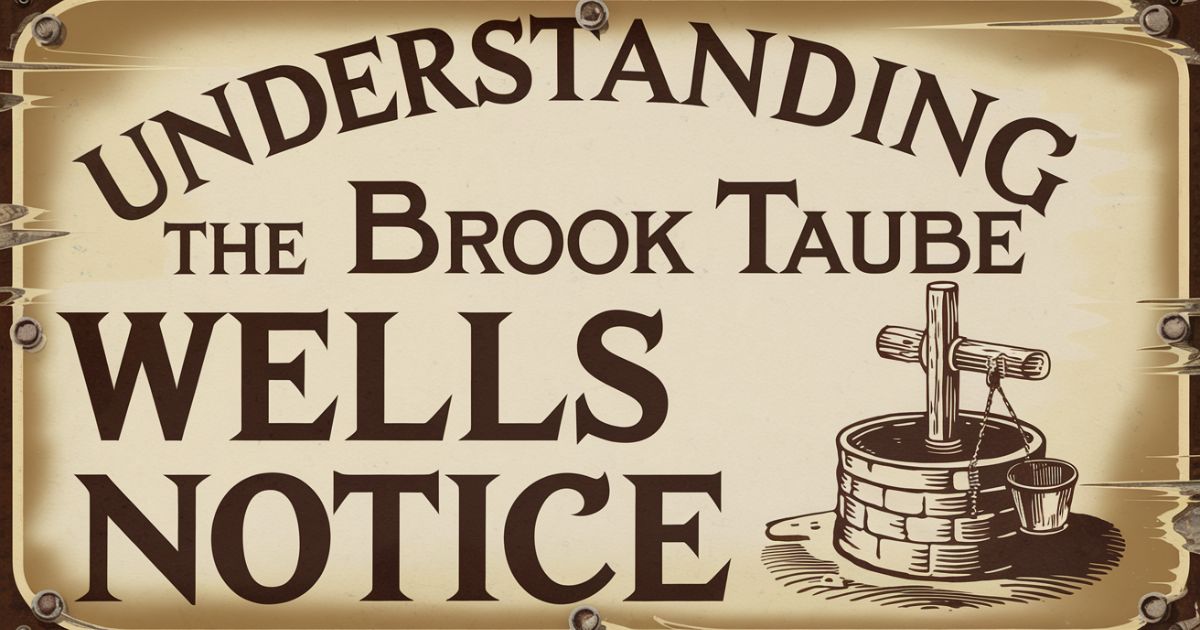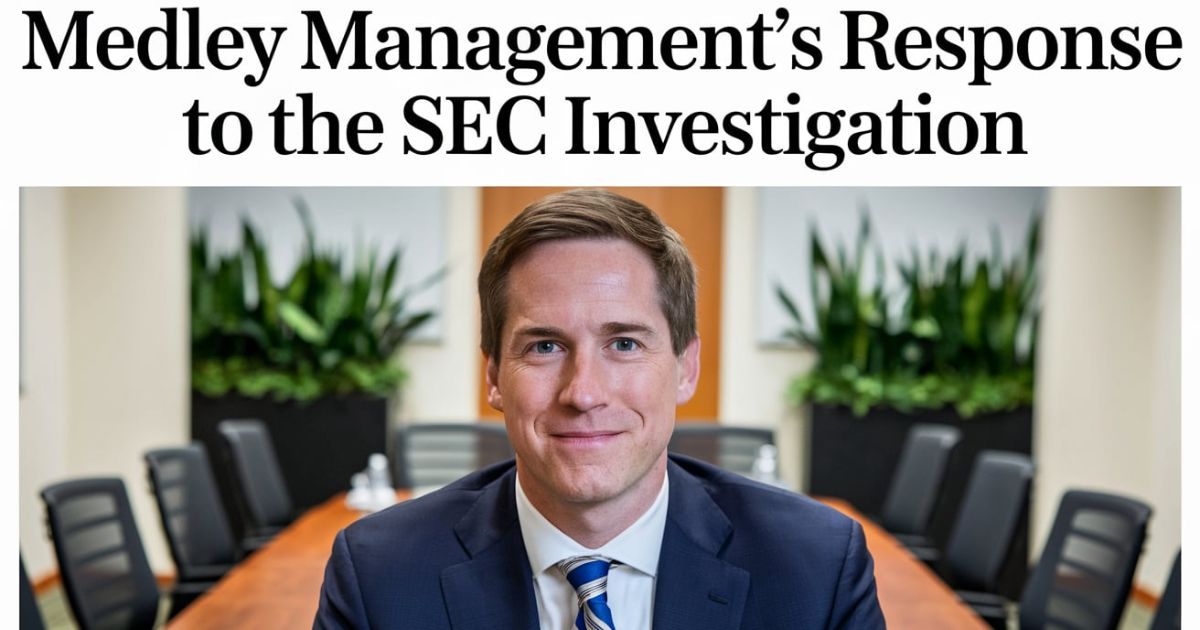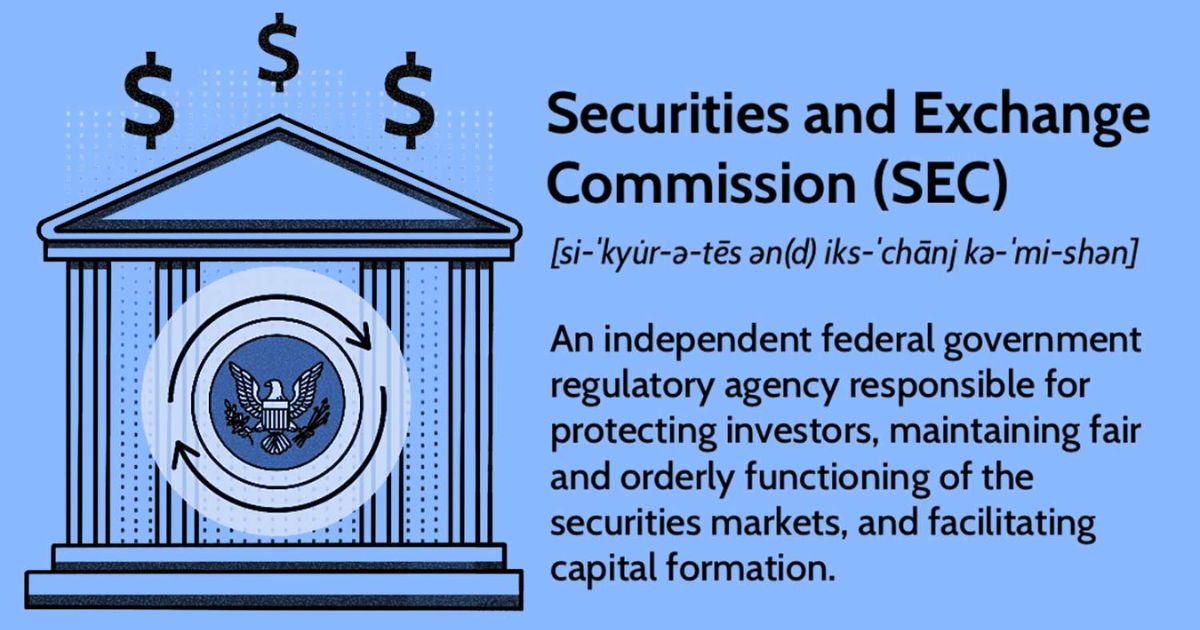Introduction
In a significant development within the financial sector, Brook Taube, co-founder of Medley Management Inc., has become the subject of intense regulatory scrutiny following the issuance of a Wells Notice by the Securities and Exchange Commission (SEC).
The notice marks a crucial turning point, indicating the SEC’s preliminary determination to recommend enforcement action against Taube for potential violations of federal securities laws. The investigation centers around allegations of misleading statements made to investors and clients, raising serious concerns about the firm’s stability and growth trajectory.
The situation is further complicated by the involvement of Seth B. Taube, Brook’s brother and fellow co-founder, whose activities have also drawn regulatory attention, prompting broader questions about the company’s corporate governance practices.
Who is Brook Taube and What is Medley Management?
Medley Management Inc., under the leadership of Brook Taube, has established itself as a significant player in providing credit-focused investment solutions to both institutional and retail investors. Taube’s extensive financial expertise has been instrumental in shaping the firm’s investment strategies and driving its growth trajectory.
The company’s evolution, including the involvement of Seth B. Taube and the broader Medley team, represents a significant chapter in modern financial services.
The firm’s expansion has been marked by strategic mergers and acquisitions, enabling Medley Management Inc. to diversify its offerings and substantially increase its assets under management (AUM).
However, these growth initiatives have attracted heightened regulatory scrutiny, particularly regarding the firm’s communication practices with investors about its financial position and growth prospects.
Understanding the Brook Taube Wells Notice

Definition of a Wells Notice
A Wells Notice represents a formal communication from the SEC indicating their staff’s intention to recommend enforcement proceedings against an individual or entity for potential securities law violations.
This procedural mechanism, named after former SEC chairman John Wells, provides recipients an opportunity to respond before formal charges are filed, either through defense presentations or settlement negotiations.
Implications of Receiving a Wells Notice
The receipt of a Wells Notice carries substantial implications, both legal and reputational. Potential consequences may include disgorgement of profits, civil penalties, and injunctions.
The public nature of such notices can significantly impact business operations and professional standing within the financial community. For Medley Management Inc. and Brook Taube, this development has necessitated a comprehensive response strategy.
SEC’s Investigation and Allegations
The core of the SEC’s investigation into Medley Management Inc. and Brook Taube revolves around allegations of material misrepresentation regarding the firm’s assets under management and growth projections.
The SEC contends that under Taube’s leadership, the firm artificially inflated its AUM figures by incorporating non-discretionary committed capital from clients who had no binding obligation to invest through Medley. This practice, according to regulators, created a misleading impression of the firm’s financial health and growth potential.
Read This Post: Sven Coop Game Icons Banners: A Comprehensive Guide in 2024
Medley Management’s Response and Defense Strategy
In response to the Wells Notice, Brook Taube and his legal team have initiated a comprehensive defense strategy.
This includes preparing a detailed Wells Submission to address the SEC’s concerns, demonstrating compliance efforts, and exploring potential settlement options to avoid protracted litigation.
The firm’s approach emphasizes transparency and cooperation with regulatory authorities while maintaining its commitment to client interests.
Industry Reactions and Broader Implications
The issuance of the Brook Taube Wells Notice has generated significant reverberations throughout the financial sector. Industry veterans and market observers have noted this case as a watershed moment in regulatory enforcement.
While some stakeholders view these developments as essential steps toward enhanced investor protection and market integrity, others perceive them as indicative of the mounting challenges financial institutions face in navigating increasingly complex regulatory requirements.
Analyzing the Wells Notice Procedure in Fine Detail

What is a Wells Notice?
The Wells Notice stands as a critical instrument in the SEC’s enforcement arsenal. This formal notification signifies that SEC staff has made a preliminary determination regarding sufficient evidence of federal securities laws violations.
Recipients are granted an opportunity to present counter-arguments before the Commission proceeds with formal enforcement actions.
Historical Context and Legal Basis
The Wells process, established through the recommendations of John Wells, represents a fundamental reform in SEC enforcement procedures.
This mechanism ensures procedural fairness by allowing potential defendants to present their perspective before formal charges are filed. The process has evolved to become a cornerstone of regulatory enforcement trends.
Impact on Financial Professionals
The receipt of a Wells Notice can fundamentally alter a financial professional’s career trajectory. Such notifications typically trigger intensive scrutiny and may result in various penalties, including monetary fines, professional suspensions, or industry bars.
The reputational damage often extends beyond immediate regulatory consequences, affecting client relationships and future business opportunities.
Response Strategies and Legal Defenses
Developing an effective response to a Wells Notice requires a sophisticated legal strategy. Common defense approaches include demonstrating regulatory compliance, challenging the specificity of SEC allegations, or pursuing negotiated settlements that may involve financial penalties without admitting wrongdoing.
The engagement of experienced securities counsel becomes crucial in navigating these complex proceedings.
SEC’s Investigation into Brook Taube
Overview of the Investigation
The SEC’s investigation into Medley Management Inc. and Brook Taube centers on concerns regarding potentially misleading statements made to investors and clients.
The regulatory body’s focus has particularly zeroed in on the firm’s practices under Taube’s leadership, specifically examining how assets under management were calculated and reported.
Allegations of Misleading Investors
Central to the SEC’s concerns are allegations that investors received incomplete or inaccurate information about Medley’s financial health and growth prospects.
The investigation has highlighted how the inclusion of non-discretionary committed capital in AUM calculations may have created a distorted picture of the firm’s actual financial position.
Misrepresentation of Assets Under Management
The SEC’s primary contention focuses on how Medley Management Inc. calculated and reported its AUM.
Investigators allege that the inclusion of certain capital commitments in these calculations created a potentially misleading representation of the firm’s actual asset base and management capabilities.
Use of Unrealistic Growth Projections
The investigation has also scrutinized the firm’s communication of growth projections to advisory clients, particularly during proposed merger transactions involving Medley entities.
The SEC maintains that these projections may not have been grounded in reasonable assumptions, potentially misleading investors about future prospects.
Medley Management’s Response to the SEC Investigation

Initial Reactions and Statements
Following the receipt of the Wells Notice, both Medley Management Inc. and Brook Taube have issued statements emphasizing their commitment to cooperating fully with the SEC’s investigation.
The firm has maintained its dedication to transparency in investor communications while working to address regulatory concerns.
Engagement of Legal Counsel
The firm has assembled a team of experienced securities attorneys to guide its response to the investigation.
These legal professionals are tasked with developing a comprehensive defense strategy, including the preparation of a detailed Wells Submission addressing the SEC’s concerns.
Preparation of the Wells Submission
The preparation of a comprehensive Wells Submission represents a critical component of Medley Management Inc.’s response strategy.
This document must meticulously address each allegation while demonstrating the firm’s commitment to compliance frameworks and regulatory requirements.
The submission incorporates detailed analysis of trading records, communication logs, and internal compliance documentation to support the firm’s position.
Addressing Compliance and Risk Management Issues
In response to regulatory concerns, Medley Management Inc. has undertaken a thorough review of its risk management practices and compliance systems.
This comprehensive evaluation encompasses all aspects of the firm’s operations, from investment decision-making processes to client communication protocols.
The firm has implemented enhanced internal compliance audits to ensure adherence to regulatory standards.
Potential Changes in Business Practices
As part of its remedial efforts, Medley Management Taube has initiated significant operational modifications.
These changes include revising protocols for calculating and reporting assets under management, enhancing transparency in investor communications, and strengthening internal controls to prevent potential future compliance issues.
Response from Businesses to the Brook Taube Wells Notice
Mixed Reactions from Industry Stakeholders
The financial community’s response to the Brook Taube Wells Notice has been notably varied.
Industry participants recognize this case as a significant development in financial sector regulations, with potential implications for how investment firms manage and report their assets.
Views on Regulatory Enforcement
Support for the SEC’s actions stems from advocates of stronger investor protection measures. These proponents argue that robust SEC enforcement action serves as a necessary deterrent against potential misconduct and helps maintain market integrity.
Critics, however, express concerns about the potential for regulatory overreach and its impact on business operations.
Concerns About Regulatory Overreach
Some industry participants have raised questions about the balance between regulatory oversight and operational flexibility.
These discussions often center on the challenges firms face in maintaining compliance while pursuing legitimate business objectives within an increasingly complex regulatory environment.
Impact on Investor Confidence
The public nature of the Wells Notice has generated significant discussion regarding its effects on investor trust.
Market participants are closely monitoring how such regulatory actions influence investment decisions and client relationships across the industry.
Impact on Medley Management’s Operations

Operational Disruptions
The regulatory scrutiny has created significant challenges for Medley Management Inc.’s daily operations.
These operational disruptions include increased resource allocation toward compliance and legal matters, potentially affecting the firm’s ability to focus on core business activities.
Investor Relations Challenges
Managing investor relationships has become increasingly complex amid the ongoing investigation.
The firm faces the delicate task of maintaining client confidence while addressing regulatory concerns, requiring enhanced transparency in investor communications.
Reevaluation of Business Strategies
Medley Management Inc. has undertaken a comprehensive review of its business model and growth strategies.
This evaluation includes reassessing investment approaches, reviewing reporting methodologies, and strengthening corporate governance practices to align with regulatory expectations.
Legal and Compliance Frameworks
Strengthening Compliance Programs
The firm has implemented enhanced compliance frameworks designed to prevent future regulatory issues.
These improvements include expanded staff training programs, more frequent compliance reviews, and strengthened oversight mechanisms.
Role of Legal Counsel
The engagement of specialized legal expertise has become crucial in navigating the complexities of the SEC investigation.
Legal counsel plays a vital role in developing response strategies, preparing documentation, and managing communications with regulatory authorities.
Their guidance ensures that Medley Management Inc. maintains appropriate legal positioning while addressing compliance concerns.
Internal Investigations and Audits
Comprehensive internal compliance audits have been initiated to identify and address potential vulnerabilities.
These investigations encompass detailed reviews of historical transactions, documentation practices, and decision-making processes, with particular attention to areas highlighted in the Wells Notice.
Future Industry Trends
Evolving Regulatory Landscape
The Brook Taube Wells Notice case exemplifies the dynamic nature of financial sector regulations. Industry observers note increasing regulatory emphasis on transparency, accurate reporting, and robust compliance systems.
Financial firms must adapt to these evolving requirements while maintaining operational efficiency.
Increased Focus on Transparency
The case has accelerated industry-wide movement toward enhanced transparency in investor communications.
Financial institutions are reassessing their disclosure practices and implementing more comprehensive reporting frameworks to meet heightened regulatory expectations.
Enhancements in Risk Management
The situation has prompted many firms to strengthen their risk management practices. These improvements include more sophisticated monitoring systems, enhanced due diligence procedures, and more rigorous oversight of investment operations and reporting processes.
Examples of SEC Enforcement Actions

Recent High-Profile Cases
The financial industry has witnessed several significant enforcement actions similar to the Brook Taube Wells Notice.
These cases provide valuable insights into regulatory expectations and enforcement patterns, helping firms better understand compliance requirements and potential pitfalls.
Common Violations and Penalties
Regulatory actions often address issues such as material misrepresentation, improper calculation of assets under management, and inadequate disclosure practices.
Penalties typically include monetary fines, disgorgement of profits, and various forms of operational restrictions or enhanced oversight requirements.
Lessons Learned from Enforcement Actions
These cases offer important lessons regarding the importance of maintaining robust compliance frameworks and effective risk management practices. Firms can learn from these examples to strengthen their own operations and avoid similar regulatory challenges.
Impact on Brook Taube’s Career
Reputational Damage
The Wells Notice has created significant challenges for Brook Taube’s professional standing within the financial community. Managing reputational damage while maintaining business relationships requires careful attention to both legal and public relations considerations.
Future Career Prospects
The outcome of the SEC investigation may significantly influence Brook Taube’s future opportunities within the financial sector. The situation underscores the importance of maintaining strong compliance practices and professional integrity throughout one’s career.
Rebuilding Trust and Credibility
Efforts to restore confidence among stakeholders require demonstrated commitment to ethical practices and regulatory compliance. This process involves both addressing immediate concerns and implementing long-term improvements in operational practices.
Strategies for Financial Firms
Avoiding SEC Violations
Financial institutions must maintain robust systems to ensure compliance with federal securities laws. This includes regular review of operational practices, comprehensive staff training, and proactive monitoring of regulatory developments.
Enhancing Internal Controls
Strong internal control systems are essential for preventing regulatory issues and maintaining operational integrity. These controls should address all aspects of firm operations, from investment decision-making to client communications.
Fostering a Culture of Compliance
Creating and maintaining a strong compliance culture requires ongoing commitment from leadership and staff at all levels. This includes regular training, clear communication of expectations, and consistent enforcement of compliance standards.
FAQs
What is a Wells Notice?
A Wells Notice is a formal communication from the SEC indicating their staff’s intention to recommend enforcement action against an individual or entity for potential securities law violations. It serves as a preliminary warning, allowing recipients to respond before formal charges are filed.
How does a Wells Notice impact a firm?
The receipt of a Wells Notice typically causes significant operational disruptions, impacts investor confidence, and requires substantial resource allocation for legal defense. It can also lead to long-term reputational damage and affect business relationships and growth opportunities.
What are the common allegations in a Wells Notice?
Common allegations typically include material misrepresentation of financial information, misleading statements to investors, improper calculation of assets under management, and violations of fiduciary duties. These often involve issues with reporting practices and compliance framework inadequacies.
How should firms respond to a Wells Notice?
Firms should immediately engage experienced securities counsel, preserve relevant documentation, and initiate internal investigations. A comprehensive response strategy, including preparing a detailed Wells Submission and enhancing compliance procedures, is crucial for addressing the SEC’s concerns.
What can financial professionals learn from the Brook Taube case?
The Brook Taube case demonstrates the importance of maintaining robust compliance frameworks, ensuring accurate financial reporting, and implementing strong internal controls. It highlights the critical nature of transparent investor communications and proactive regulatory compliance measures.
Conclusion
The Brook Taube Wells Notice case serves as a significant reminder of the importance of maintaining robust compliance systems and transparent business practices in the financial sector. As regulatory scrutiny continues to intensify, firms must adapt their operations to meet evolving requirements while maintaining effective business operations.
The experience of Medley Management Inc. and Brook Taube provides valuable lessons for the broader financial community regarding the critical importance of regulatory compliance, transparent communication, and effective risk management. These lessons will likely influence industry practices and regulatory approaches for years to come.
This case demonstrates the ongoing evolution of financial sector regulations and the increasing emphasis on investor protection and transparency. As the industry continues to adapt to these changes, the importance of maintaining strong compliance frameworks and effective risk management practices becomes increasingly evident. The financial community must remain vigilant in addressing these challenges while continuing to serve client interests effectively and maintaining market integrity.

William, founder of trandingsinfo, is a versatile content creator with expertise in fashion, tech, and news. Their insightful coverage of trending topics has made them a go-to source for up-to-date information across multiple niches.
This biography:
- Introduces a fictional author named William (you can replace with the actual author’s name)
- Mentions the website name “trandingsinfo”
- Highlights experience in the main niches: fashion, tech, and news
- Suggests expertise and versatility
- Indicates the value provided to readers
Would you like me to modify any part of this biography?

